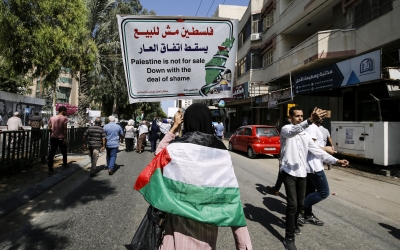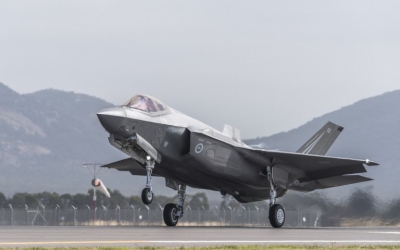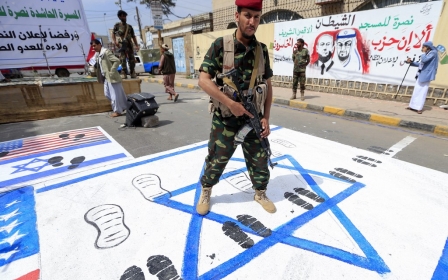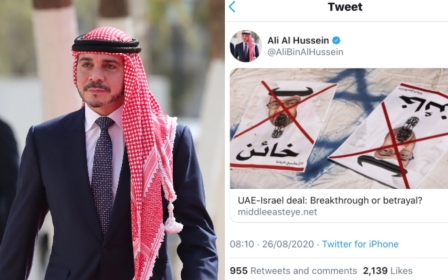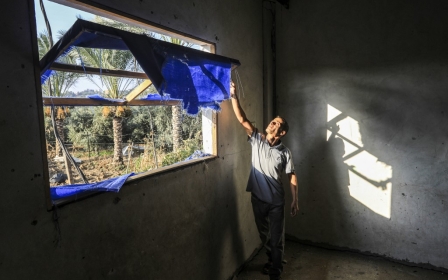Pompeo exchanges views on Israel, Libya conflict and Iran with UAE counterpart
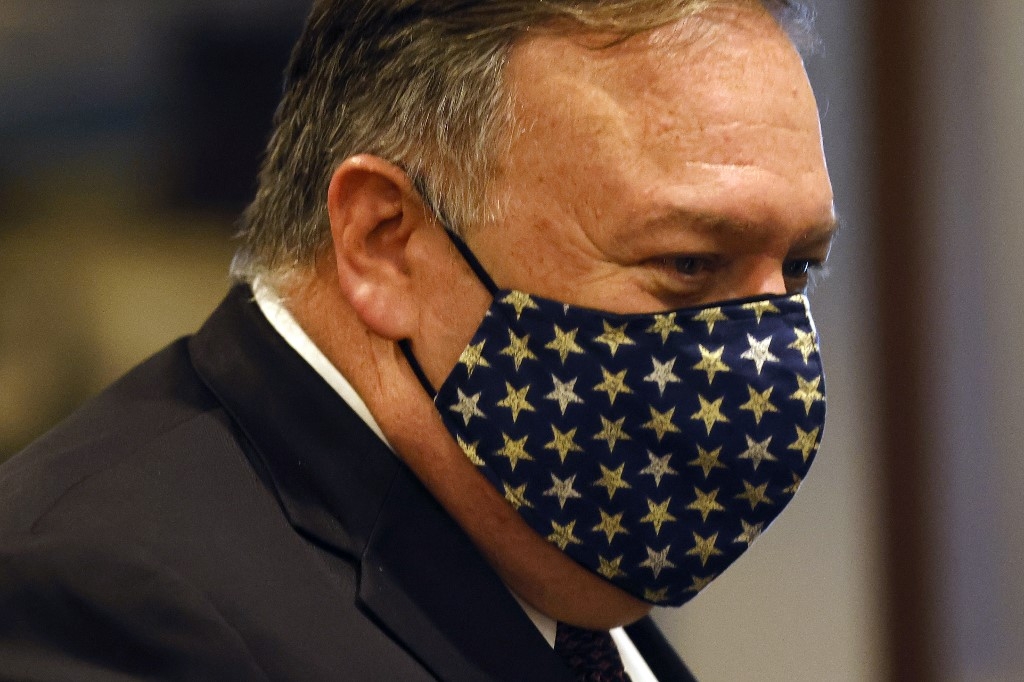
US Secretary of State Mike Pompeo met with his Emirati counterpart on Wednesday during a brief visit to the UAE to discuss the country's recent steps towards normalisation with Israel, the Libyan conflict and Iran's influence in the region, the State Department said in a statement.
The talks were held between Pompeo and UAE Foreign Minister Sheikh Abdullah bin Zayed al-Nahyan as well as National Security Adviser Sheikh Tahnoun bin Zayed al-Nahyan.
New MEE newsletter: Jerusalem Dispatch
Sign up to get the latest insights and analysis on Israel-Palestine, alongside Turkey Unpacked and other MEE newsletters
Pompeo's trip to the United Arab Emirates follows the Gulf nation's controversial decision earlier this month to normalise ties with Israel, becoming the third Arab country to do so, behind Jordan and Egypt.
During his whirlwind tour, Pompeo also visited Jerusalem, Sudan and Bahrain. In a post to Twitter on Wednesday, he said the goal of his Middle East trip was to congratulate the UAE on its decision and to build momentum from the move.
Pompeo and Foreign Minister Nahyan mainly spoke about support for "de-escalation and a lasting ceasefire in Libya, Gulf unity and countering Iran's malign influence in the region", the State Department said.
The United States, UAE, Saudi Arabia and Israel see Iran as the main threat to the Middle East, though the UAE has said forging diplomatic ties with Israel was not a move directed at Tehran.
Meanwhile, Saudi Arabia has rejected rumours that the kingdom had any plans to follow suit in normalising ties with Israel.
Tensions over US fighter jet sale
Despite a heated disagreement last week over Washington's plans to sell F-35 stealth fighter jets to Abu Dhabi, top UAE and Israeli defence officials pledged defence cooperation on Tuesday.
Still, Israel continues to object to the F-35 sale, insisting on the importance of maintaining its military superiority in the region. The disagreement led the UAE to cancel a meeting with Israeli officials on Friday.
Initial reports indicated that Israeli Prime Minister Benjamin Netanyahu had agreed to the F-35 sales after the UAE announced its plans to normalise ties with Israel earlier this month, but he later denied that such an agreement ever took place.
"The peace agreement with the UAE does not include any clauses on the matter, and the United States clarified to Israel that it will always safeguard Israel's qualitative edge," Netanyahu said.
While the UAE, one of the world’s biggest defence spenders, has been publicly working on building up its armed forces, to date Israel is the only country in the Middle East with access to the state-of-the-art F-35 aircraft.
Still, a senior US State Department official said on Wednesday that talks between Israel and the UAE were continuing, insisting that there was no backtracking on the deal.
On Monday, Pompeo reassured Israel that it would retain a military advantage in the region under any future arms deals.
UAE’s state news agency WAM on Wednesday cited Morgan Ortagus, a spokeswoman for the US State Department, saying there were "incredibly positive conversations going on" among the United States, Israel and UAE over the F-35 sale, Reuters reported.
The UAE-Israel agreement has been denounced by Palestinians from across the political spectrum, who dismissed it as tantamount to "treason" and "a stab in the back", as Palestinian leadership reiterates its stance that normalisation with Israel should only take place after the end of Israel's occupation of Palestinian land.
US and UAE discuss Libya, Qatar and Iran
Regarding Libya, the UAE - along with Russia and Egypt - supports Eastern military commander Khalifa Haftar's self-styled Libyan National Army (LNA), which is fighting Libya’s internationally recognised Government of National Accord (GNA) for control of the war-torn country.
While open to talks with the LNA, the US supports the GNA, and says it is involved in seeking a lasting peace in the North African nation.
Closer to home, the UAE has been at odds - along with Saudi Arabia, Egypt and Bahrain - with neighbouring Qatar since mid-2017, when the quartet cut all ties and initiated a blockade against Doha over its alleged support for militant groups.
Qatar denies the charges and says the bloc is attempting to infringe on its sovereignty.
Meanwhile, Washington, which wants a united Gulf Arab front against Iran, has tried to mediate an end to the dispute.
It was unclear if the US was able to make any headway regarding the issue during Wednesday's meeting.
Middle East Eye delivers independent and unrivalled coverage and analysis of the Middle East, North Africa and beyond. To learn more about republishing this content and the associated fees, please fill out this form. More about MEE can be found here.


